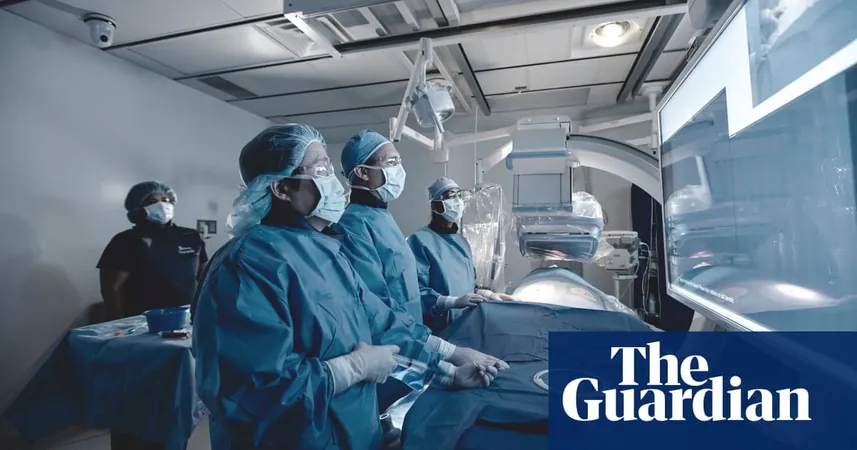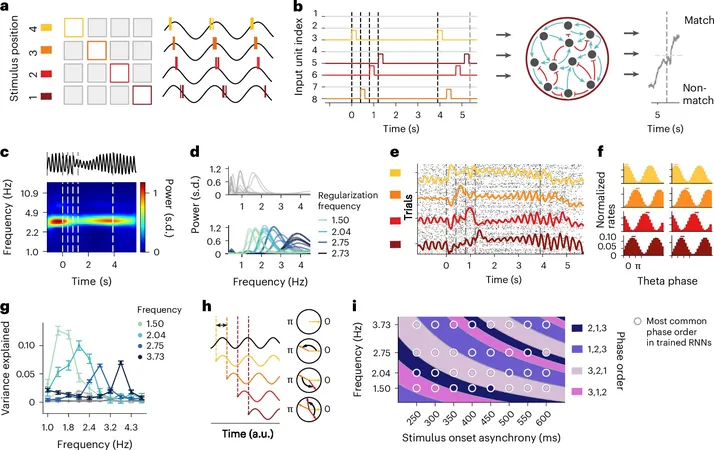
Experts Warn Against 'Catastrophic' Funding Cuts to AI Cancer Technology in England – Could This Cost Lives?
2025-03-31
Author: Jia
In a shocking move that has sent ripples through the medical community, NHS England has drastically reduced funding for groundbreaking AI technology critical to cancer treatment. Experts are raising alarms that these cuts could lead to increased waiting times and potentially endanger patients’ lives.
The technology in question is AI auto-contouring, which is essential in the radiotherapy process. This method enables medical professionals to map tumors and surrounding healthy tissue more effectively, ensuring that radiation treatment targets cancer cells while sparing healthy organs. Traditionally, this contouring process can be painstakingly slow, requiring anywhere between 20 and 150 minutes of a doctor's time. However, AI can perform the same task in under five minutes, saving both time and costs—approximately £10-£15 per patient.
Research reveals that AI contouring significantly reduces waiting times for radiation therapy. For breast cancer patients, it may cut waiting periods by more than five days; prostate cancer patients may see a reduction of nine days, while lung cancer patients could wait three days less for treatment. This technology was initially backed by a £15.5 million government investment announced in May 2024, aimed at equipping all radiotherapy hospitals with AI auto-contouring capabilities.
However, in a devastating turn of events, funding was abruptly canceled in February 2025 due to a purported need for prioritizing healthcare investments. This decision has led to a retrogressive shift in cancer treatment, forcing many departments back to the old manual contouring method, which critics argue is a major step backward in cancer care.
An analysis from Radiotherapy UK estimates that this funding withdrawal could lead to an extra 500,000 days added to waiting lists for breast, prostate, and lung cancer treatments, inflicting a severe burden on an already overwhelmed healthcare system. Current data highlights that as of January, roughly 60% of cancer patients awaiting radiotherapy treatment were experiencing delays of more than two months.
Prominent oncologist Prof. Pat Price, chair of Radiotherapy UK, has condemned the government's decision as "wrong-footed" and calls into question the commitment to adopting AI innovations in the NHS. With a radiotherapy vacancy rate at 8%, the removal of AI resources exacerbates existing staff shortages, leaving departments to halt operations due to a lack of personnel to manage radiation machines.
Clive Peedell, a consultant from South Tees Hospitals NHS Foundation Trust, expressed urgent concerns, labeling the funding cuts as "catastrophic" and suggesting that upwards of half of all cancer patients will require radiotherapy during their treatment. He criticized the government for stifling innovation in a sector reliant on advanced technologies to manage increasing patient loads effectively.
A radiotherapy manager, under the pseudonym Jane Richards, shared frustration over investing effort into implementing AI Technology only to have support pulled away afterward. She highlighted the direct relationship between resource allocation and patient outcomes, noting that longer waiting periods could worsen prognoses for patients fighting cancer.
Moreover, Spencer Goodman from the Society of Radiographers emphasized that the withdrawal of funding contradicts the recognized potential of AI to enhance patient care efficiency and streamline processes—a necessity, particularly amid workforce shortages.
In response to criticism, a spokesperson for the Department of Health stated, "Funding has not been cut," without addressing the specific concerns surrounding the AI contouring program. They emphasized the government’s commitment to investing £70 million in radiotherapy to modernize machines and reiterated the use of AI in other healthcare sectors, including breast cancer diagnosis and overall cancer management strategies.
As the outcry continues, stakeholders in the healthcare and cancer treatment communities call for immediate government intervention to reconsider these cuts, emphasizing that without investment in promising technologies, the NHS may jeopardize its capacity to provide timely and effective cancer care.



 Brasil (PT)
Brasil (PT)
 Canada (EN)
Canada (EN)
 Chile (ES)
Chile (ES)
 Česko (CS)
Česko (CS)
 대한민국 (KO)
대한민국 (KO)
 España (ES)
España (ES)
 France (FR)
France (FR)
 Hong Kong (EN)
Hong Kong (EN)
 Italia (IT)
Italia (IT)
 日本 (JA)
日本 (JA)
 Magyarország (HU)
Magyarország (HU)
 Norge (NO)
Norge (NO)
 Polska (PL)
Polska (PL)
 Schweiz (DE)
Schweiz (DE)
 Singapore (EN)
Singapore (EN)
 Sverige (SV)
Sverige (SV)
 Suomi (FI)
Suomi (FI)
 Türkiye (TR)
Türkiye (TR)
 الإمارات العربية المتحدة (AR)
الإمارات العربية المتحدة (AR)